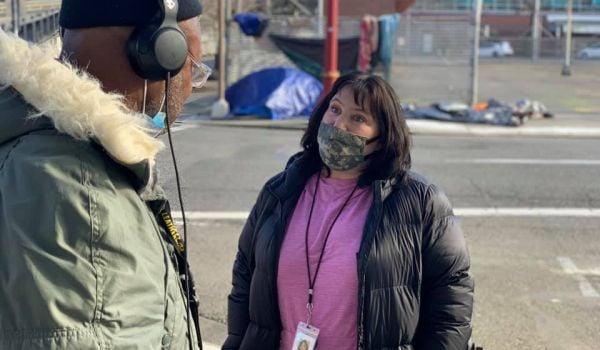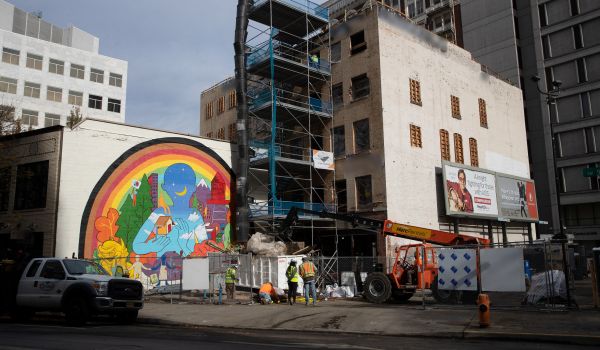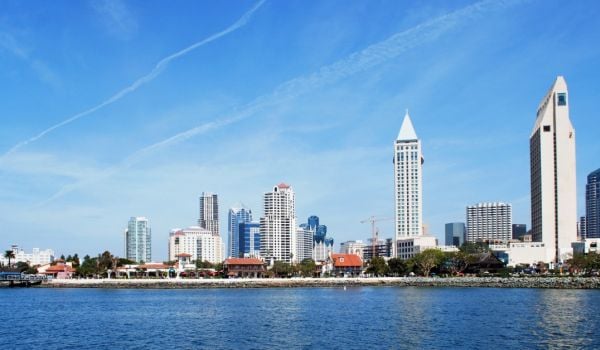Portland Mayor Bans “Camping” On School Routes
Oregon’s Health Authority released data showing 207 unhoused people have died this year. This is the first year the state has released data of this kind, the result of legislation which went into effect in January, according to The Register Guard. Amid these deaths, the state’s largest city is expanding camping bans without consulting other agencies or social services nonprofits. Portland Mayor Ted Wheeler issued an emergency declaration banning camping on routes to K-12 schools, citing trash, “biohazards” and hypodermic needles as hazardous for children to navigate. The ban is an extension of a previous ban on camping in high-crash traffic areas, although that order resulted in some people moving into even more dangerous areas, per OPB. The mayor has already begun directing staff to remove encampments ahead of students returning to school, according to Oregon Live, which broke the story on the ban. The routes cover wide swaths of the city, including any walkway within a mile of a school, according to KOIN 6 News.
City commissioners and nonprofits had no advanced notice about the ban, KOIN 6 News reports. “It is concerning, because we are the experts on the ground in addressing housing barriers and understanding where the challenges are to getting people the addiction treatment or mental health treatment or hygiene or rent assistance,” Laura Golina De Lavato, director of Northwest Pilot Project, told the outlet.
Inflation Reduction Act Will Fund Energy Efficient Retrofits
The Build Back Better Act, which died in Congress earlier this year, would have meant a once-in-a-generation investment in affordable housing and public housing. The recently-passed Inflation Reduction Act left most of that out, although there are benefits for homeowners. While it’s unclear if the newly-passed legislation will have any impact on home prices or rents, it will allow homeowners to more cheaply decarbonize their homes. The law includes tax credits for homeowners who want to install more energy-efficient heat pumps and water heaters, as well as solar panels and electric HVAC in their homes.
According to The Boston Globe, the law also offers rebates at “point of sale” – no need to wait for a refund – on energy-efficient appliances. These rebates will also be offered to nonprofits and landlords, provided the equipment benefits low-income tenants. A 100% discount on appliances will be available to anyone whose household income is 80% of the Area Median Income, and a 50% discount will be granted to anyone whose income is between 80-120% of AMI, according to The Globe.
The Treasury Department also quietly changed its rules for federal American Rescue Plan funds. The changes allow for Emergency Rental Assistance funds to be used for rehabilitation and preservation of affordable housing, and also extend the window for State and Local Fiscal Recovery Funds to provide loans for new affordable housing.
San Diego County Votes To Adopt By-Name List For People Experiencing Homelessness
San Diego County’s Board of Supervisors has voted to adopt a “by-name” list to coordinate homeless services, The Times of San Diego reports. The by-name list – a way of individually cataloging people experiencing homelessness along with their medical needs and personal history – is increasingly being adopted by local governments to address their unhoused populations, especially in highly vulnerable categories. By-name lists allow social workers to target personalized resources.
The tool was popularized by the Built For Zero initiative, which partners with cities to help them reach “functional zero” homelessness, or an environment where most homelessness is brief. Next City has been covering the approach around the country.
San Diego County’s Regional Task Force on Homelessness tallied a 10% increase in the homeless population between 2020 and 2022, according to the Times of San Diego. That includes a 56% increase in families experiencing homelesness. The by-name list would not be public and participation is optional, the San Diego Union Tribune reports.
Community Solutions, which runs Built For Zero, says both San Diego city and county joined the program in October 2020. The city of San Diego already uses by-name lists for youth and veterans experiencing homelessness, according to The San Diego Union Tribune.
Bonus Reads
The City reports on the complicated path for compensation for those whose homes were flooded by Hurricane Ida.
The New Republic covers how L.A.’s preparations for the 2026 World Cup and 2028 Olympics have already begun pushing out longtime renters.
Gothamist examines how New York City’s landlords are exploiting a legal loophole through which they can combine rent-regulated units and hike rents.
This article is part of Backyard, a newsletter exploring scalable solutions to make housing fairer, more affordable and more environmentally sustainable. Subscribe to our weekly Backyard newsletter.

Roshan Abraham is Next City's housing correspondent and a former Equitable Cities fellow. He is based in Queens. Follow him on Twitter at @roshantone.








_600_350_80_s_c1.jpg)

_600_350_80_s_c1.jpg)







